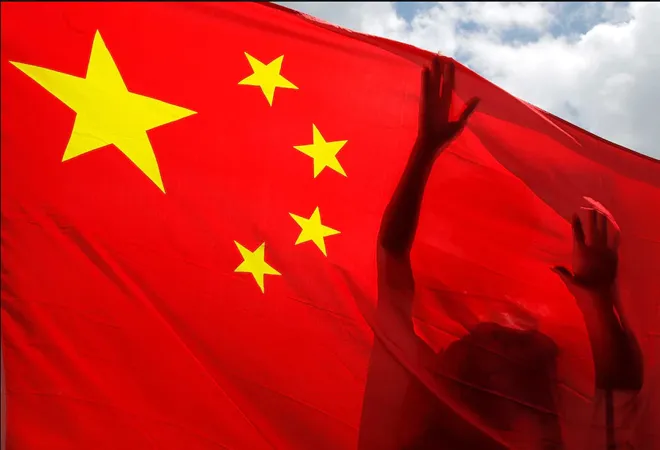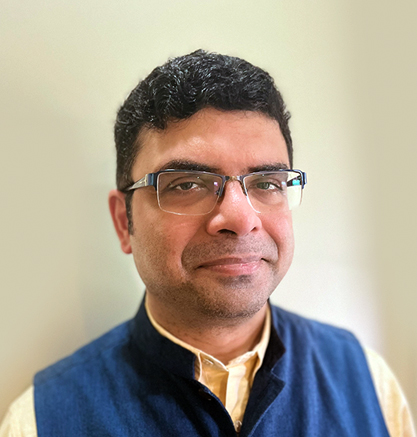-
CENTRES
Progammes & Centres
Location
The rise of other contenders in the CCP raises questions about Xi’s long-term political prospects.

The Chinese Communist Party (CCP) leadership has been likened to a gaggle of swans in a lake. The birds hardly cause a ripple on the surface and may even swim along without changing their positions, but below the surface, there is intense paddling to stay afloat. The emergence of Premier Li Keqiang on the political scene and the rise of second-tier leaders like Vice-Premier Sun Chunlun (the highest-ranking woman functionary) amidst the COVID-19 crisis have fueled speculation regarding CCP General Secretary Xi Jinping’s political prospects.
Xi Jinping and Li Keqiang belong to the fifth generation Chinese Communist Party (CCP) leaders who were elevated at the 18th Party Congress held in 2012 to lead as China’s President and Premier respectively for the next decade. The succession of the two was reportedly the result of a compromise between the two leading factions of that time—the Shanghai faction led by Jiang Zemin and the Communist Youth League (CCYL) faction led by Hu Jintao, to which Xi and Li respectively belonged.
Xi Jinping and Li Keqiang belong to the fifth generation Chinese Communist Party (CCP) leaders who were elevated at the 18th Party Congress held in 2012 to lead as China’s President and Premier respectively for the next decade.
Since taking over as the General Secretary of the CCP in 2012, Xi has swiftly moved to centralise power around him. He started by eliminating his potential rivals and successors through his anti-corruption drive. In 2018, he abolished the two-term limit on the presidency set by Deng Xiaoping in the 1980s. In the run-up to the 2022 Party Congress where important leadership changes are announced, state-run media in China started pushing a new slogan—' Two Establishes’—to cement Xi’s status. The motto ‘Two Establishes’ denotes establishing Xi’s status as China’s “core” leader and establishing his political doctrine, which was enshrined in the country’s constitution in 2018. The title “core leader” bestows Xi with a unique stature and conveys that he should not be challenged, thus, senior CCP officials seem to have acquiesced to his dominance.
The slogan made its debut in a resolution on history that was cleared by scores of top party officials in November 2021. It entrenched Xi’s status, putting him at the same level as Mao Zedong and Deng Xiaoping. It was just the third resolution of its kind since the party was founded 100 years ago, and took stock of its achievements with a heavy focus on those since Xi took power.
The centralisation of power has rendered Li Keqiang, supposed second-in-command, relatively inconsequential in Chinese politics. Sidelining of Li was fairly evident, when Xi, in 2013, himself assumed the Chair of the Party Leading Small Group (LSG) on economy and finance against the exiting convention of appointing the Premier as its Chair. Although Li heads many of the Central Government LSGs, Party LSGs exercise enormous influence and wide-ranging decision-making powers compared to the former. Further, Party LSGs have assumed even greater significance under Xi and mostly supersede decisions by other government bodies overlooking the same issue. In this light, Li Keqiang’s absence in any of the existing LSGs indicates an attempt towards dwarfing his role in policy making and governance.
Sidelining of Li was fairly evident, when Xi, in 2013, himself assumed the Chair of the Party Leading Small Group (LSG) on economy and finance against the exiting convention of appointing the Premier as its Chair.
Having consolidated his grip over the CCP, Xi Jinping is seeking an unprecedented third term in the upcoming 20th Party Congress due to be held in 2022. Until recently, it was largely agreed that Xi would succeed in his attempt unhindered and would further consolidate power at the top leadership position, given Li’s expected retirement after his ten-year term comes to an end. However, policy outcomes are exposing cracks in his power. Tightened controls on tech giants to property developers have affected economic growth. Xi and Russian President Vladimir Putin announced a friendship with “no limits” ahead of Russia’s invasion of Ukraine. China’s Wang Yi called Russia “most important strategic partner”. This compact has widened the chasm between the West and China. In the Cold War, China, despite nominally being in the Communist camp, managed to get the best deal from the West that propelled its rise as the second-largest economy. Some observers see the signs of a course correction. Under the system of the nomenklatura, important positions in Communist nations that have a bearing on public life are staffed by party members to give it leverage in the political and economic arena. In a system that prizes conformity, few would dare to challenge the dominant narrative, let alone their supreme boss. Yet when they do so, it points to a rethink within the Party. Thus, the counsel of Hu Wei, a scholar affiliated with the State Council (China's cabinet led by Li Keqiang) and Chairman of the Shanghai Public Policy Research Association, that China must distance itself from Putin should be seen in this light. Hu’s views stirred debate amongst Chinese academia, but was he merely testing the waters for Li?
However, of late, two key developments have led observers to speculate that Li might be finally coming out of Xi’s shadows as the 20th Party Congress approaches. The first development pertains to Li Keqiang’s visible assertiveness on the state of economic affairs in the country. On 19 May, at the Yunan Symposium on stabilising growth that was attended by government officials from 12 provinces, Li stressed the need for reconciling COVID control measures with economic and social development. Xinhua reports that Li “emphasised the importance coordinate COVID-19 control with economic and social development in a more efficient way and the importance of stepping up macro regulation.” He further directed the local governments to undertake steps to “quickly bring back economy back on track”. In the meeting, he also pledged support for the platform economy and digital sector, which is significant given Xi’s crackdown on the tech sector for alleged ‘disorderly expansion of capital’. Later, on 26 May, in a Teleconference with around 100,000 people including party cadres, while pointing toward high unemployment and slow economic growth rate, Li urged officials to take action to revive the economy. These statements were construed as some form of pushback led by Li against Xi’s zero-COVID policy which in recent times has faced public backlash.
Under the system of the nomenklatura, important positions in Communist nations that have a bearing on public life are staffed by party members to give it leverage in the political and economic arena.
The second development that the observers relied on was greater than usual coverage given to Li over Xi in the state-run media, People’s Daily. It was argued that the absence or reduction of Xi’s appearance or reference in the backdrop of increased coverage provided to Li, suggested the latter’s rising influence vis-à-vis the former.
While the spectre of a cataclysmic power struggle in the CCP may be conjecture, this episode reveals a lot about the concentration of near-absolute power in the hands of an individual. Having experienced the vagaries of one-man rule and their impact on policymaking, Deng brought in a collective leadership in the form of institutions that would keep each other in check and institutionalised political succession wherein a leader got a decade at the helm of the nation. By removing term limits and purging rivals through the anti-graft campaign, Xi may have created a trap where contenders are seemingly lying in wait for him to trip over policy.
The views expressed above belong to the author(s). ORF research and analyses now available on Telegram! Click here to access our curated content — blogs, longforms and interviews.

Kalpit A Mankikar is a Fellow with Strategic Studies programme and is based out of ORFs Delhi centre. His research focusses on China specifically looking ...
Read More +
Amit Kumar is a Research Analyst with the Takshashila Institutions Indo-Pacific Studies Programme.
Read More +